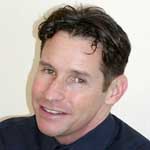-
- Bishops announce anti-gay marriage initiative
- Gay student group wants official recognition at Seton Hall
- Marriage debate echoes civil rights struggles
- Matthew Shepard’s mother lobbies for hate-crimes bill
- Conservative Episcopal organization meets
- Attorney for man accused of killing priest seeks access to report
- University celebrates King holiday
- Another amendment proposed
- National News Briefs
- World News Briefs
commentary
Sex researcher or gay sex predator?
Published Thursday, 22-Jan-2004 in issue 839
BEYOND THE BRIEFS
A recently filed lawsuit will raise concerns about the safety of the participants in sex study research and what methods grant recipients use to ensure the privacy and safety of sex study research subjects.
Cory Jones, an Indiana State University undergraduate, has filed a suit against the university, charging that, during the course of sex research, he was sexually abused by a professor.
According to The Chronicle of Higher Education, students at ISU have alleged sexual abuse against retired professor Jerome A. Cerny. ISU forced Cerny to retire when Jones filed this current case, but the story of abuse began in 1996, when several male students filed complaints against Cerny.
Cerny apparently recruited male subjects in his freshman-level human sexuality course to partake in his sex studies. There was no shortage of volunteers, as they received extra credit.
Michael Morse participated in a study. He said that Cerny met him at the lab and told Morse to remove his clothes and put on a paper gown. Then Cerny told Morse to place a device called a plethysmograph over his penis.
Morse said that, after leaving the room, Cerny returned and complained that Morse had put the device on incorrectly. Then Cerny ripped Morse’s hospital gown and grabbed Morse’s penis in order to re-adjust the device. After that, Cerny told Morse to remain still while Cerny returned to the next room. Then Cerny told Morse to masturbate while watching a 15-minute clip from a porn movie.
Test subjects also placed their penises in a device known as a “vibratory tactile device” to masturbate. Cerny built the device, which consisted of a wooden base, an adjustable vibrator, and a rubber tube about two to three inches in diameter into which a subject would insert his penis.
During the process, Morse said he sat in a room by himself, repeatedly watching the same 15-minute film featuring two women and one man having sex. As the experiment continued, Cerny touched Morse’s penis no fewer than eight times. The session lasted three hours, during which time Morse tried repeatedly and unsuccessfully to ejaculate using the machine.
While Cerny engaged in this research for 20 years, he published only one article, in 1995. Morse said he felt degraded after the experiment, but he did return for a second session.
Morse thought what occurred was routine until Cerny came up to him in a hall and tickled his sides and winked at him. Then Morse learned that another student said Cerny had grabbed his buttocks and asked about his sex life. The two men then told one of Cerny’s graduate assistants, who said that Cerny had also touched his penis during a session.
J. Michael Bailey, a psychology professor at Northwestern University, said that researchers do not see their subjects naked and never touch their penises.
As a result of the complaints, ISU put Cerny on leave for a year and closed his lab in 1997.
The matter should have been referred to the District Attorney to pursue charges of sexual assault, but Cerny was allowed to remain on the faculty at ISU and to continue research at Indiana University. Officials there indicated nothing untoward happened in his research.
ISU allowed Cerny to resume his research in 2001. Jones indicates in his lawsuit that Cerny duped him into helping design an ergonomic chair for use in sex research.
Cerny allegedly told Jones to remove his pants and sit on a piece of paper so that Cerny could trace around his “legs, butt, and testicles.” Jones returned for a second session and Cerny made him put on the same devices as Morse did. After Jones ejaculated, Cerny insisted on helping Jones clean up. Then Cerny told Jones he wanted to see how long it would take him to ejaculate a second time. This time Cerny stayed in the room and watched Jones masturbate. When Cerny left the room, Jones said he could see a pair of eyes peering through the blinds. After Jones complained, Cerny defended the actions, saying they were “necessary to facilitate” the research.
While Cerny engaged in this research for 20 years, he published only one article, in 1995.
ISU could incur liability under federal law for failing to protect students against a known sexual harasser. More likely, however, is liability based upon negligent supervision and retention.
Aware of Dr. Cerny’s prior behavior, ISU officials had a duty to protect students against foreseeable harm. He should not have been left unsupervised around students. Further, the university should not have retained Cerny after learning that he had sexually assaulted other students.
|
|
Copyright © 2003-2025 Uptown Publications


